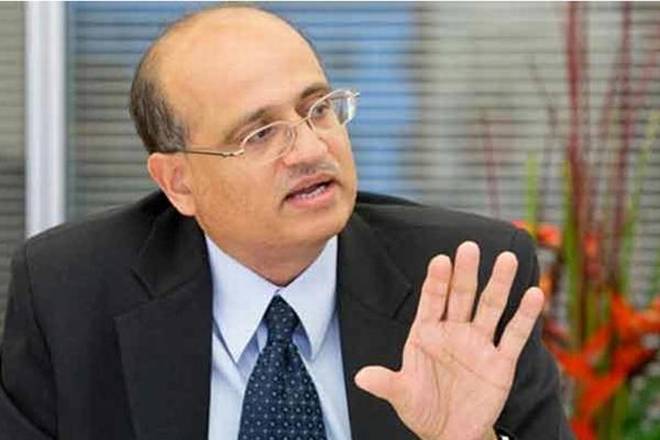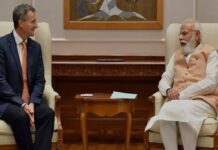 NEW DELHI: Connectivity projects should be consultative and consequent with the principles of sovereignty and territorial integrity, India’s foreign secretary-designate Vijay Gokhale said today, in an obvious reference to China’s mega ‘One Belt One Road’ (OBOR) initiative.
NEW DELHI: Connectivity projects should be consultative and consequent with the principles of sovereignty and territorial integrity, India’s foreign secretary-designate Vijay Gokhale said today, in an obvious reference to China’s mega ‘One Belt One Road’ (OBOR) initiative.
Responding to a question on whether the OBOR leads to dependency of nations on China, Gokhale, currently the secretary (economic relations) in the External Affairs Ministry, responded in the affirmative.
“If you have players who come and set different set of rules, who set a different set of standards, where there are no standards, where there are weak rules and procedures, you automatically create infrastructure and ecosystem of dependency,” Gokhale said, but did not name China.
Gokhale, who will take over from Foreign Secretary S Jaishankar on January 28, said the issue is not whether Africa or any other continent will become dependent on any country but the issue is what the international community is doing about one country not following basic international rules on sovereignty and territorial integrity.
“What is the rest of the world going to do to ensure that there is a certain rule setting, and that the existing rule setting is not disrupted because any one country or any group of countries decide its own set of rules and then proceeds…,” he said while addressing the multi-lateral geo-political conference ‘Raisina Dialogue’.
Before his current assignment, Gokhale was the Indian Ambassador to China.
China has made a significant investment in Africa and Asia-Pacific and announced a number of infrastructure projects.
India has boycotted the OBOR initiative on the grounds of territorial sovereignty, given that that its flagship project, the China Pakistan Economic Corridor (CPEC), passes through Pakistan-occupied-Kashmir, which India has always maintained is its territory.
Gokhale also raised questions over the methodology to be used while executing the OBOR initiative.
“Is this process (of OBOR) demand-driven, consultative? Does it allow a fair and open competition? Is the process built on multilateral frameworks that already exist and is the process consequent with principles of sovereignty and territorial integrity?” Gokhale said.
Referring to the Chabahar port in Iran, Iranian deputy foreign minister Seyed Kazam Sajjapour said the project is “not a competition to anyone” and a “win-win” initiative for Iran, India and Afghanistan.
Access to Chabahar port helps India by-pass Pakistan to primarily reach Afghanistan and Central Asia.
Sajjadpour, while speaking at the Raisina Dialogue, said the project is a “game changer” and it saves 60 per cent of India’s cost and 50 per cent in time for its goods to reach Central Asia.-PTI







